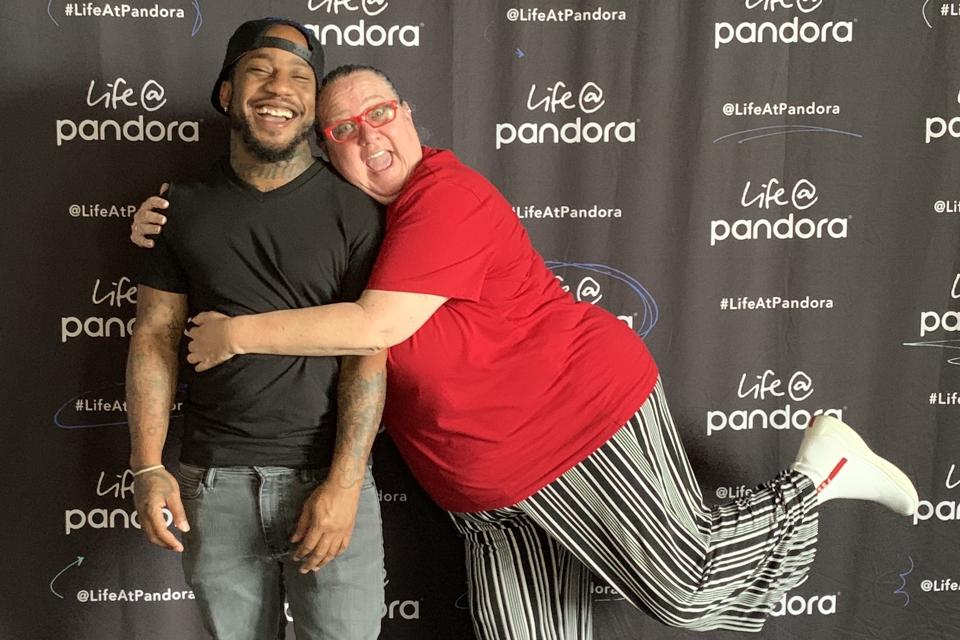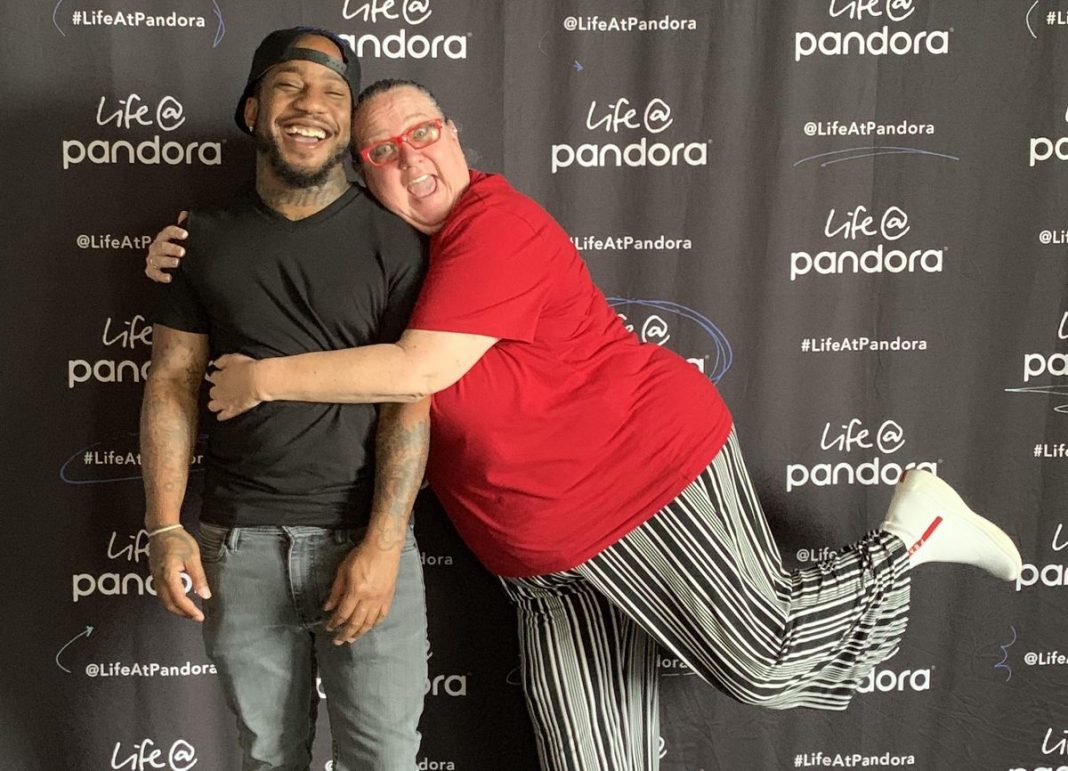
Wendy Day, founder of Rap Coalition, with rapper Lil Donald at a Pandora event.
Courtesy of Wendy Day/Shawna Reed
Before rap became commercially visible with The Sugarhill Gang’s 1979 release of Rapper’s Delight, it was best known that emcees would speak or rhyme over beats during neighborhood barbeques. The genre quickly gained traction after Kurtis Blow’s 1980 The Breaks became a Top 5 hit that eventually went gold. For over 40 years, rap and hip-hop have influenced society by even normalizing words like twerk and crunk. Statista reported that in 2018, hip-hop and rap music accounted for 21.7% of total music consumption in the United States, more than double the percentage of R&B music sales.
Wendy Day, founder of Rap Coalition, has helped shape the industry to what it is today by launching the careers of some of the most famous rappers in the world, including Master P and Eminem.
Rap Coalition is a not-for-profit artists advocacy organization to educate, inform and unify rap artists, producers and DJs. “In March 1992,” Day said, “I started Rap Coalition. For the first couple of years, I was introducing rappers to lawyers that could pull them out of bad deals. I shortly realized that just pulling somebody out of that deal wasn’t enough; I needed to be able to help them get into a good deal.”
Day’s interest in rap and hip-hop occurred while attending a college event with an opening performance by Grandmaster Flash and the Furious Five. A few years later, her love of the genre would turn into a business opportunity.
After graduating college, she began working in Montreal as the vice president of marketing at a liquor company. When the company sold to a larger organization, Day received a buyout package that enabled financial freedom. She decided to return to the U.S and eventually enrolled in a pop-music course at the New School taught by a gentleman who was an accountant to celebrities. The biggest takeaway: Artists were being exploited or shelved by the record labels with no one helping them.
“That bothered me,” Day shared. “I decided to start Rap Coalition sitting in that classroom because I wanted to help artists when they had no place else to turn.”

Wendy Day, founder of Rap Coalition and PowerMoves, in the recording studio listening to a new song.
Shawna Reed
She began attending industry events and clubs, meeting executives and artists. The more she explained what she was doing, the more people started introducing her to other artists. Before long, she was known throughout the industry. After operating Rap Coalition for a few years, she launched PowerMoves, a consulting company within the industry. The for-profit company was maintaining the not-for-profit organization. Her first major deal catapulted her popularity.
“I knew with the first deal, not that I knew that Master P would go on to be as big as he was, I knew that he’d be big because I could see the fan reaction,” she humbly shares. “Remember, I was a fan. I knew who had good music and who didn’t. I knew who was hot on the streets and who wasn’t. So I came to it from a very unique vantage point where I knew who to work with to experience success because I was part of the community.”
Although Day’s portfolio includes some of the world’s top artists, helping launch Eminem’s career is one of her proudest moments. She met him while at an industry event. He was rapping outside of the hotel. Instantaneously she recognized his talent. As she encountered pushback from labels because he was a white rapper, she created the Rap Olympics to showcase his talents.
“I was doing it, first of all, to bring attention to him [Eminem],” Day explains. “So he was on my team. But it was also because at that point in time, gangsta rap was growing. It felt like between Death Row and even Bad Boy Records, which Bad Boy was not really gangsta rap, but the artists that were successful at bad Boy were rapping about flying around in helicopters and popping bottles of champagne. … I could tell that the music was changing. It was going more to storylines than lyrics. People were focusing more on the visual side than the lyrical side. The second reason that I did Rap Olympics is I wanted to bring attention back to lyricism.”

ORLANDO, FL – AUGUST 05: (L-R) Don Diva Magazine CEO Tiffany Chiles, WQHT on-air personality Minya … [+]
Getty Images
Currently, Day is in the process of structuring an incubator for rappers and pop artists, Artist Centric, that will accelerate the business side of their music careers. Additionally, outside of the music realm, she is in the process of a new business venture that includes the development of two 40,000 square foot coworking spaces.
As Day continues to pivot, she focuses on the following essential steps:
- Conduct as much research as possible. Make sure the pivot is realistic, necessary and makes sense financially.
- Develop self-confidence. Go after what you want; don’t sit on the sidelines wondering what-if.
- Measure the right data as you’re transitioning or pivoting. If something isn’t working, try something else or pivot your approach. Having metrics will help you decide which direction to go.
“When you run any company or organization, you have to fill a need,” Day concludes. “As those needs change, the organization or the company needs to change in order to fill the new need. I’ve always been good at that. I guess that’s kind of like my, if there is such a thing as a superpower, that’s my superpower. I’m able to see what artists need, and then I have the ability to go find it and bring it to them.”




